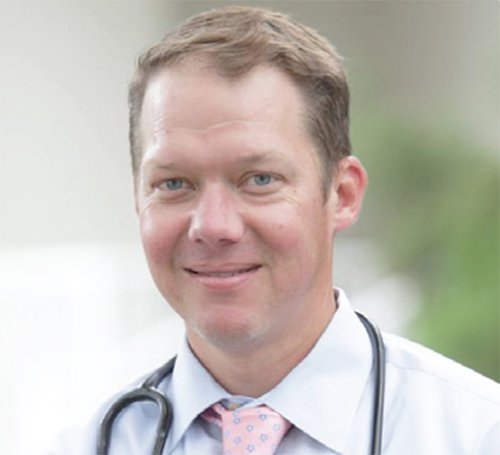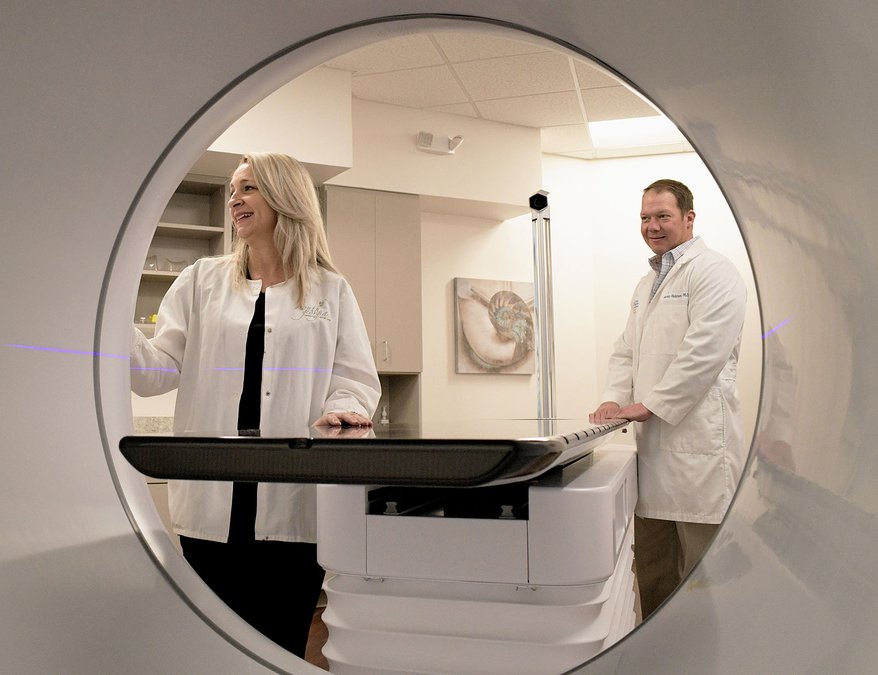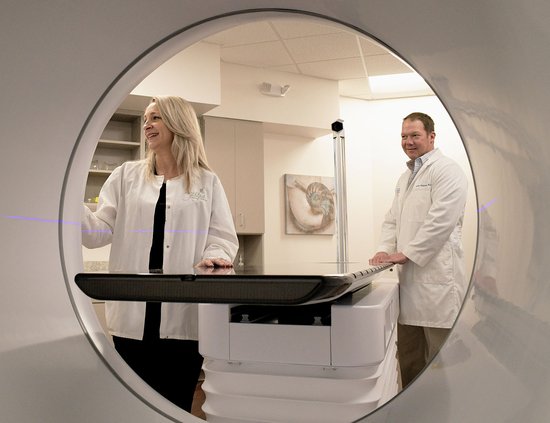The South Georgia Center for Cancer Care in Statesboro is about to unveil a machine that will significantly improve the quality and efficiency of radiation treatment for all its patients.
For the past two months, the center, which is located on Coach Lee Hill Boulevard across from Statesboro High, has been installing a Halcyon radiation system that will deliver a higher dose of radiation and target a particular cancer more precisely than ever before.
“From a radiation standpoint, it is the biggest advancement in treatment locally in 15 years,” said Dr. Michael Hasselle, who is one of three board-certified radiation oncologists at the center.

Prior to the installation of the Halcyon machine, the Statesboro center used the Varian radiation system that preceded Halcyon for its patients. But that machine simply was not able to deliver treatment for a number of patients, who then had to travel anywhere from 45 to 90 minutes to Savannah or Augusta to receive radiation from Halcyon machines at facilities in those cities.
“About a year and a half ago we decided we had to get this new technology,” said Dr. Aaron Pederson, medical director for the Statesboro center. “We’ve got enough patients coming through every day. We’ve inconvenienced enough people with a drive to Savannah.”
Both Pederson and Hasselle joined the South Georgia Center for Cancer Care practice about five years ago. Pederson earned his medical degree from the Strinch School of Medicine at Loyola University of Chicago, while Hasselle received his medical degree from Emory School of Medicine in Atlanta.

The South Georgia Center for Cancer Care is part of the Integrated Oncology Network (ION) of treatment centers. ION operates more than 50 centers in 16 states. According to the ION website, the Statesboro center is their only office in Georgia.
Fewer treatments
One of the benefits of the Halcyon machine in its ability to provide a higher dose of targeted radiation therapy is that patients will need far fewer treatments.
“We can mostly get done in three to five treatments what historically would be given over six weeks,” Dr. Pederson said. “When I first started my training almost 20 years ago, the standard for stage one lung cancer was 33 treatments, Monday through Friday, and each treatment would take 15 minutes or so. Now we go from six and half weeks of daily radiation and now it may be three radiation treatments and you’re done. And each treatment is no more than 10 minutes.
“So consider someone getting treatment 15 minutes a day for 33 treatments now going to about 30 minutes total. That’s a massive change. We could not do that with our old machine and now we can.”
For prostate cancer, Dr. Hasselle said that instead of as many as 40 or more treatments, a patient may only need five treatments using the Halcyon machine. As a result of this efficient treatment, patients can save time and travel, as well as money, by coming in for fewer appointments, he said.
Along with getting the Halcyon machine, the center upgraded its CT (CAT) scanner that is used to create diagnostic images that help direct treatment.
“The new scanner will accommodate people of any size,” Dr. Hasselle said. “The amount of time needed to acquire the images is three or four fold faster than the old machine.
“Most importantly, it allows for a four-dimensional CT scan. If you’re treating a tumor that’s in the lung or upper abdomen, those are moving while you breathe. Scanning a tumor at the bottom of the lung may move two or three centimeters as you breathe in and out.
“The 4-D scan will allow us to see the tumor in different phases of respiration and create basically a movie where you can see how much the tumor is moving and account for that in your treatment planning.”
One of the keys to the Halcyon device in improving radiation treatment is its high-quality image guidance, Hasselle said. It is able to deliver a higher dose of radiation that targets a particular cancer precisely, while avoiding areas unaffected by cancer.
“The Halcyon has a CT scanner built in, which allows for much more accurate alignment of radiation therapy on a cancerous tumor,” he said.
Installing the Halcyon machine
With the installation of the Halcyon machine, the center has not been able to offer radiation treatment in its office for the past two months. The center’s patients are expected to be treated using the new machine sometime next week.
“Once the old equipment was removed and the new equipment was installed, weeks and weeks of testing were needed to ensure the machine is accurate and delivering radiation in the margins expected and prescribed to best treat every patient and their specific cancer,” Dr. Pederson said.
“There are multiple verifications that a dose is where it’s supposed to be and the accuracy is within less than a millimeter. Before we use the machine to treat the first patient, it must be operating perfectly in every way.”
Both doctors are looking forward to offering the benefits of the Halcyon machine to the radiation treatment for all their cancer patients.
“I love doing what I do,” Dr. Pederson said. “Curing someone of their cancer is the best thing I can ever do. You don’t win them all, but you win enough and you make people better and that is an incredible blessing. The longer I do it the more I appreciate that if you can’t cure somebody, you can at least help them lead as high a quality of life as possible.”

